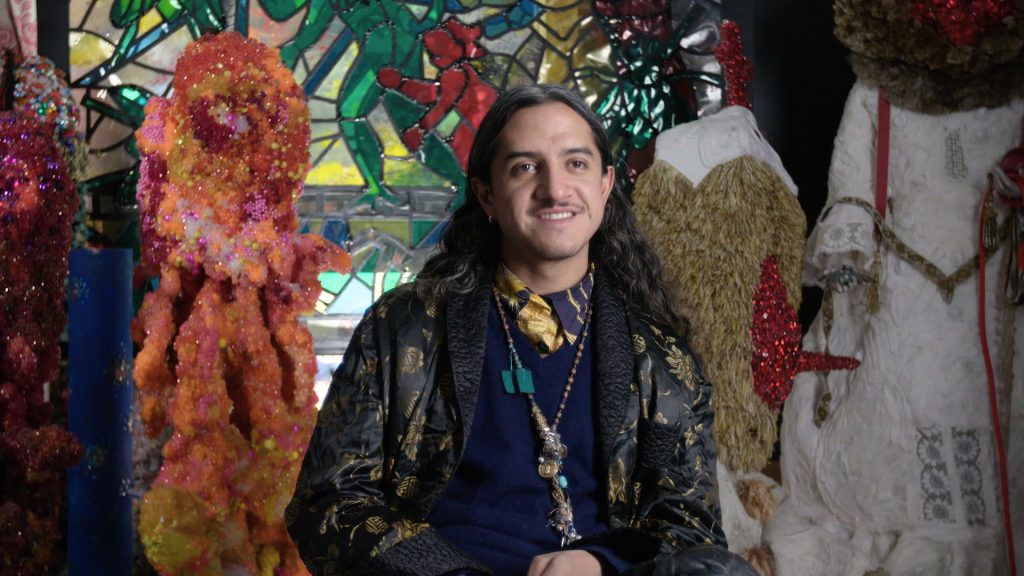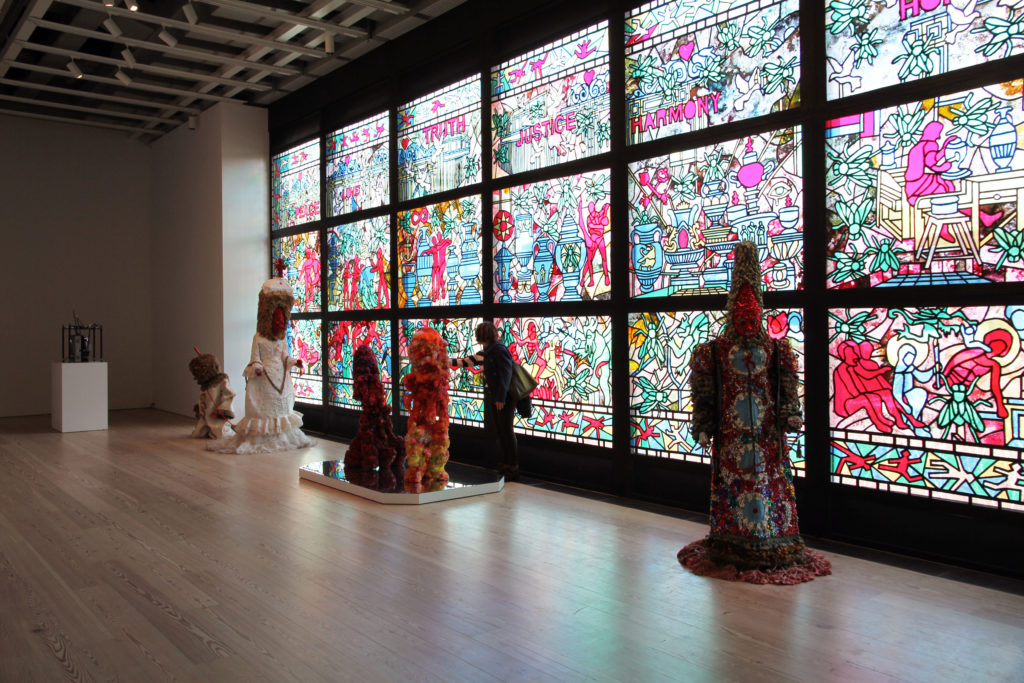
- Source: Artnet News
- Author: Editors
- Date: December 23, 2021
- Format: Online
‘I Got to See a Lot of Celebration’: Watch How Artist Raúl de Nieves Fuses Mexican Craft Traditions and Queer Club Culture
As part of a collaboration with Art21, hear news-making artists describe their inspirations in their own words.

Production still from the Art21 "New York Close Up" film, "Raúl de Nieves is an American Artist." © Art21, Inc. 2017.
What does it mean to be an “American artist”? There are museums, galleries, and whole programs of study dedicated to the genre, but as with everything that seems black and white at first, it’s not so simple.
For the artist Raúl de Nieves, born in Michoacán, Mexico, the question of what it means to be American came to the fore of his mind in 2017, when he was preparing a major installation for that year’s Whitney Biennial. “Essentially, I’m showing in ‘the museum of American art’ and I’m from Mexican descent, but, you know, what does that mean today?” he asked in a 2017 interview with Art21.
De Nieves came to the U.S. at nine years old with no warning and no suitcase. Today, his artwork—which encompasses densely adorned sculpture, installation, and performance—melds the two worlds in which he was raised. Many of his materials, colors, and forms fuse the aesthetics of traditional Mexican craft, queer club culture, and religious iconography.

Sculptures and stained-glass window by Raúl de Nieves. Photo: Henri Neuendorf.
For the Whitney Biennial, de Nieves created a room-engulfing stained-glass mural that traces an individual’s evolution from struggle and self-doubt to celebration. “The mural talks about this experience—this journey,” the artist said. “I feel really happy that I could put so much emphasis on this idea of ‘a better tomorrow’ in my artwork.”
De Nieves’s latest exhibition, on view at the Institute of Contemporary Art, Boston (through June 24, 2022), is in many ways an extension of the themes he explored in the Whitney Biennial project. “The Treasure House of Memory” includes a collage of tarot-inspired drawings, a painting of the legend of Saint George and the Dragon, and a series of beaded sculptures that trace the evolution of a human figure into a horse.
“Growing up in Mexico was really magical because I got to see a lot of forms of celebration,” the artist, whose father died at the young age of 33, told Art21. “I got to experience death as a really young child. That’s what my work is about: it’s like seeing the facets of happiness and sadness all in one place.”

